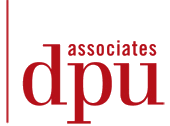_edited.header.JPG)
Making the project research: doing-by-learning with expertise (Michael Mattingly)
Submitted by frankie on Fri, 2008-04-18 21:44.
Michael Mattingly (2012)
The views expressed in 'Recent News & Reflections' are those of the author and do not necessarily reflect those of any of the governments, organisations or agencies with whom they have been working.
Michael Mattingly hopes to generate a debate by arguing in the latest issue of Public Administration and Development that, if a development project is destined to reach only a selection of its intended beneficiaries or to give them only momentary or uncertain benefits, there is a strong rationale for making it recasting it as a research project from which lessons can be learnt from the impact that it may not otherwise have.
Instead of research to formulate or verify a basic or grand theory, this approach seeks to reveal the unknowns of a specific application of known methods, techniques, and strategies. In other words, through tests performed in a particular situation, it will obtain practice knowledge that is relevant to the situation’s particular geographic, economic, social, and political features. This will be new knowledge needed by actors and the decision makers who direct the use of the methods being tested in order to make work, or improve, the application of existing professional expertise.
Examining the very large urban poverty alleviation project executed by DFID and CARE in Lusaka known as PROSPECT, he draws attention to the apparent lack of sustainability of its benefits 1, the uncertainty that some of these benefits actually were actually achieved2 and, above all, to its failure to reach more than a fraction of the poor people in the country's cities and towns3. Dismissing this as not just well short of the need but also unjust for all those not affected. He also points to the failure of other organisations to copy the actions of PROSPECT and spread the benefits throughout all of Lusaka and the rest of the Zambia. Moreover, the very large numbers of people that were involved were nevertheless put at risk, initially because of the uncertain outcome of strategies untried in Lusaka (perhaps their poverty could have been intensified) and, at the end, by the likelihood that they would soon lose the benefits they received and thus their investments of time, effort and other resources in the project.
These weaknesses of PROSPECT illustrate the case for an alternative approach which would use the initiative and resources (probably much less of them) of interventions by the likes of DFID and CARE to carry out practice-oriented research. It is argued that, if PROSPECT had set out to test its strategies with the same professionalism that it executed them, it might have learned how to make them work in the hands of all those agencies fighting urban poverty in Zambia. They might have learned to deliver within their means and to sustain the delivery of benefits that were real and longer lasting. All of this would have been possible because a research project could have searched - by trying alternatives while modifying them in the light of feedback - for actions that could continually provide benefits within the financial and administrative limitations of existing institutions. It could provide adequate evidence that of the benefits that were real and would endure, and for effective ways of achieving the use of its findings by enough agencies to reach all the poor people of Zambia's urban areas.
The article suggests that, if research was to be the principle activity of such a project, the project logically would have to be designed, led and conducted as research. Such activities as those on which PROSPECT concentrated - for example, drilling boreholes or organising local management committees - would instead be carried out as tests (and on a much smaller scale which would reduce costs to the initiators and the risks to those poor people involved) from which vital lessons could be drawn. Research experience would be needed among the designers and within the project's leadership, and a staff of competent researchers would be essential to rigorously observe and analyse the tests. The aim of the project would be to learn by doing rather than to make a new strategy work at all costs - even if only for a short time. The aim would also be to effectively deliver the project's findings (for example, through training, production of manuals, and participation of others in the research) to those whose concerted actions could achieve a level of impact that was substantial rather than partial or minor.
PROSPECT LOST: WHEN A PILOT PROJECT DOES NOT LOOK TO LEARN, Michael Mattingly, Public Administration and Development. 28, 1–9 (2008)
- ________________
1 for example, community empowerment through the management of water delivery relied on an administrative structure that was beginning to change and on revenues from water sales that were inadequate.
2 for instance, there is no evidence that poor individuals had been empowered by access to credit and it is clear that some poor people were returning to the use of water from contaminated sources.
3 i.e. an enormous impact was recorded for the delivery of better water, yet this reached less than 1/4 of the urban population that was poor.
